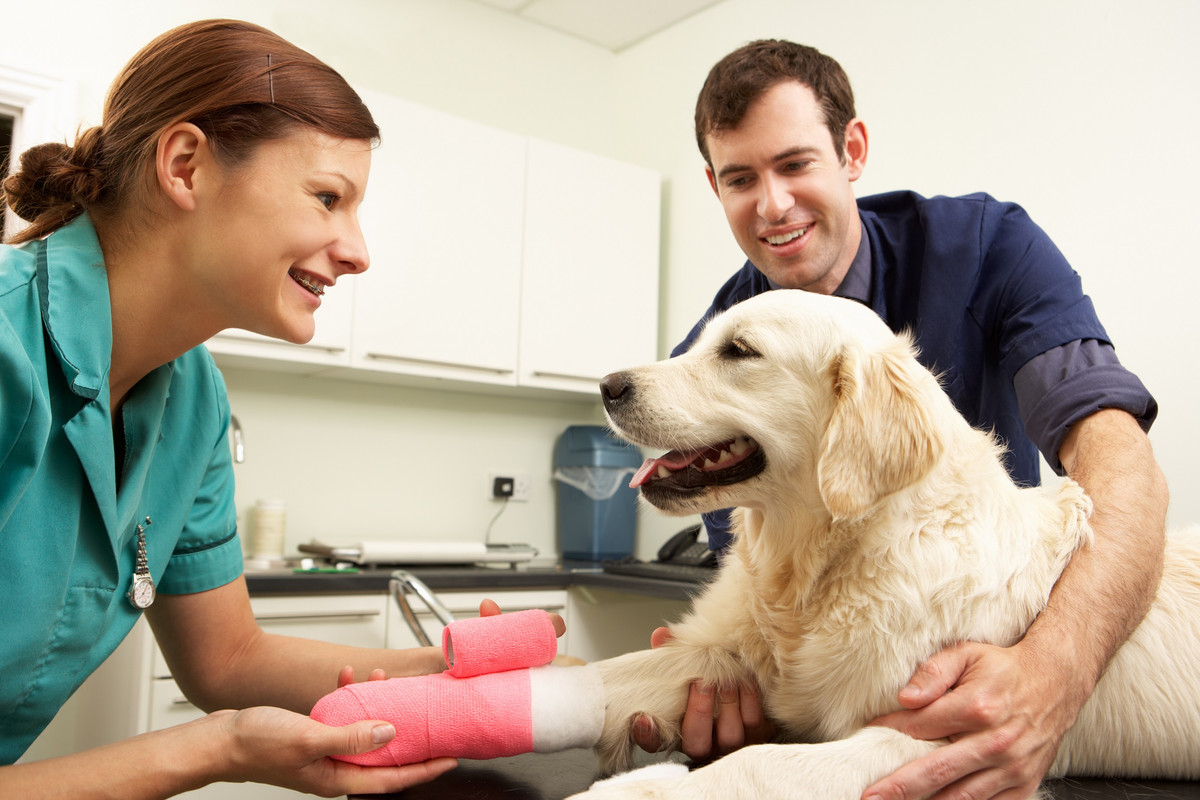Introduction
Welcome to your fabulous 50s! As you navigate this exciting decade, it’s essential to remember that your beloved pets are aging right alongside you. Pet care becomes even more crucial as both you and your furry friends grow older. This article aims to guide you in selecting the right veterinarian to ensure your pets receive the best care possible.
Just like humans, pets have evolving needs as they age. From health issues to behavioral changes, understanding these needs is the first step in providing excellent care. Let’s dive into how you can choose the perfect veterinarian for your aging pets.

Understanding Your Pet’s Needs
As pets age, they often face common health issues such as arthritis, dental problems, and decreased mobility. Preventive care becomes more critical than ever to catch potential problems early. Regular check-ups and vaccinations are essential to keep your pets healthy and happy.
Different types of pets have unique needs. For instance, dogs may require joint supplements, while cats might need specialized dental care. Exotic animals like birds and reptiles have their own set of requirements. Understanding these needs will help you choose a veterinarian who can provide the necessary care.
Behavioral changes can also indicate underlying health issues. If your pet is acting differently, it might be time for a vet visit. Additionally, aging pets often need dietary adjustments to maintain optimal health. A veterinarian can guide you in making these changes.
- Common health issues: arthritis, dental problems, decreased mobility
- Preventive care: regular check-ups, vaccinations
- Specialized care: joint supplements for dogs, dental care for cats, unique needs for exotic animals
- Behavioral changes: indicators of health issues
- Nutritional needs: dietary adjustments for aging pets
Evaluating Veterinarian Qualifications
When choosing a veterinarian, it’s essential to consider their educational background and certifications. Look for vets who have experience with aging pets and have undergone additional training in geriatric care. Membership in professional organizations is also a good sign of a dedicated and knowledgeable vet.
Continuing education is crucial in the ever-evolving field of veterinary medicine. A veterinarian who stays updated with the latest advancements can provide the best care for your pets. Don’t hesitate to ask about their qualifications and experience during your initial consultation.
Specializations can also be a deciding factor. Some veterinarians focus on specific areas such as surgery, dermatology, or nutrition. If your pet has a particular health issue, finding a vet with the relevant specialization can be beneficial.
- Educational background and certifications
- Experience with aging pets
- Specializations and additional training
- Membership in professional organizations
- Continuing education and staying updated with veterinary advancements

Assessing the Veterinary Clinic
The location and accessibility of the veterinary clinic are crucial factors to consider. A conveniently located clinic with flexible hours can make it easier to schedule appointments. Additionally, check if the clinic offers emergency services for those unexpected situations.
Cleanliness and organization are indicators of a well-run clinic. During your visit, observe the facility’s hygiene and how the staff manages the clinic. Advanced diagnostic tools and equipment are also essential for accurate diagnosis and treatment.
Consider the range of services offered by the clinic. From surgery and dental care to wellness programs, a comprehensive clinic can provide all the necessary care for your pets under one roof. This can save you time and ensure continuity of care.
- Location and accessibility
- Clinic hours and emergency services
- Cleanliness and organization
- Availability of advanced diagnostic tools and equipment
- Range of services offered: surgery, dental care, wellness programs
Building a Relationship with Your Veterinarian
Communication and trust are the foundation of a strong relationship with your veterinarian. Regular check-ups and open dialogue about your pet’s health are essential. Understanding treatment plans and options will help you make informed decisions.
Involvement in the decision-making process is crucial. A good veterinarian will discuss all available options and respect your choices. Providing feedback and following up on your pet’s progress ensures that they receive the best care possible.
Building a relationship with your veterinarian takes time, but it’s worth the effort. A trusted vet can become a valuable partner in your pet’s health journey, offering support and guidance every step of the way.
- Importance of communication and trust
- Regular check-ups and open dialogue
- Understanding treatment plans and options
- Involvement in decision-making processes
- Feedback and follow-up care
Financial Considerations
Veterinary care can be expensive, so it’s essential to plan your budget accordingly. Research the cost of services and compare prices among different clinics. While it’s tempting to choose the cheapest option, remember that quality care is an investment in your pet’s health.
Pet insurance can help offset the cost of veterinary care. Look into different insurance options and choose a plan that suits your needs. Some clinics also offer payment plans and financial assistance programs to make care more affordable.
When comparing costs, consider the value of the services provided. A slightly higher fee might be worth it for a clinic with advanced diagnostic tools and experienced staff. Investing in quality care can lead to better health outcomes for your pets.
- Cost of veterinary services and budget planning
- Insurance options for pets
- Payment plans and financial assistance programs
- Comparing costs among different clinics
- Value versus cost: Investing in quality care
Conclusion
Choosing the right veterinarian is a crucial decision that can significantly impact your pet’s health and well-being. By understanding your pet’s needs, evaluating veterinarian qualifications, assessing the clinic, building a relationship with your vet, and considering financial aspects, you can make an informed choice.
The long-term benefits of selecting the right veterinarian include better health outcomes, early detection of issues, and a trusted partner in your pet’s care. Take proactive steps today to ensure your pets receive the best care possible.
Remember, the bond between pet owners and their veterinarians is special. Start your search for the right veterinarian today and give your pets the gift of excellent care.
Frequently Asked Questions
What should I look for in a veterinarian for my aging pet?
Look for a veterinarian with experience in geriatric care, relevant certifications, and a good track record with aging pets. Membership in professional organizations and continuing education are also important.
How often should I take my aging pet to the vet?
Regular check-ups are crucial for aging pets. Aim for at least twice a year, but consult your veterinarian for a schedule tailored to your pet’s specific needs.
Are there any financial assistance programs for veterinary care?
Yes, many clinics offer payment plans and financial assistance programs. Additionally, pet insurance can help cover the cost of veterinary care.
What are some common health issues in aging pets?
Common health issues include arthritis, dental problems, and decreased mobility. Regular check-ups and preventive care can help manage these issues.
How can I build a good relationship with my veterinarian?
Communication and trust are key. Regular check-ups, open dialogue, and involvement in decision-making processes will help build a strong relationship with your veterinarian.